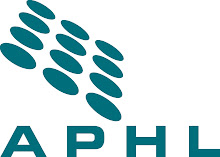by Chris Mangal, director of emergency preparedness and response
On August 31-September 1, 2009, in Winnipeg, Canada, APHL's leadership and infectious disease, preparedness and global health staff met with key officials from the Canadian Public Health Laboratory Network (CPHLN) to discuss collaborative activities, such as lessons learned from the recent H1N1 outbreak and planning for a tri-national cross-border preparedness summit. In addition, APHL staff toured the Emergency Operations Center of the National Microbiology Laboratory and learned about their Incident Command Structure used to respond to infectious disease outbreaks.
Following the meeting with CPHLN, APHL staff (Scott Becker, Mary Shaffran, Chris Mangal and Natalia Machuca) attended the first conference of its kind in Canada, “Severe H1N1 Disease: Preventing Cases, Reducing Mortality,” organized by the Public Health Agency of Canada (PHAC).
Dr. Graham Tipples from PHAC served as the Master of Ceremonies, welcoming key public health officials, including the Honorable Leona Aglukkaq, Canada's Minister of Health. The minister noted that this conference was the first of its kind to bring together clinicians, laboratorians and key public policy officials. She mentioned that the conference will help Canada to better prepare for and respond to the upcoming influenza season. The minister also mentioned that continued monitoring and surveillance for H1N1 along with consistent collaborations, information exchange and strong partnerships will be vital to keep the population healthy and prevent and manage the spread of H1N1.
The Manitoba Minister of Health, the Honorable Theresa Oswald, welcomed participants to Winnipeg, but stated, “I really wish you weren't here." This statement is a reflection of the growing concerns about the upcoming flu season and the potential for H1N1 to be more widespread, affecting the general population and overwhelming the healthcare systems globally.
Dr. David Butler-Jones, chief public health officer, PHAC, addressed the dilemma of managing and measuring H1N1. He noted that "you can't manage what you don't measure," but also mentioned that the fluidity of H1N1 cases makes it difficult to measure and as such public health officials must be creative in responding to this pandemic.
Dr. Frank Plummer, chief science advisor, PHAC, further explained the objectives of the conference, noting that he hopes participants leave with a better understanding of epidemiology and severity of the disease, clinical care and management issues, intensive care unit challenges and strategies to manage H1N1 cases. He also encouraged further connections among hospitals, infection control and public health.
Dr. Charles Penn, Global Influenza Programme, World Health Organization (WHO) addressed the current status of the pandemic and WHO efforts to facilitate communications globally, mobilize resources and provide access to vaccines and antivirals. Several additional sessions, including in-depth discussions on modeling scenarios, provided participants with more information on Canada's efforts to prepare for and respond to H1N1.
APHL will continue our collaboration with Canada and look to build stronger linkages with Mexico to ensure that there are robust laboratory systems in place to detect and respond to infectious disease outbreaks globally.
Thursday, September 3, 2009
Subscribe to:
Comments (Atom)




